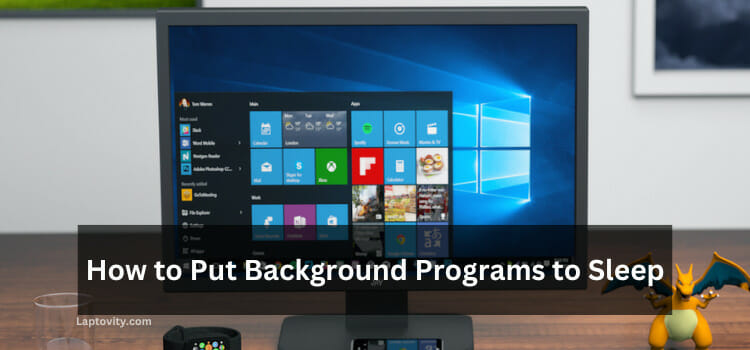Last Updated on August 2, 2025 by Nazim

When it comes to laptops, the question of “how often should you buy a new laptop” is one that many people ask. In my years of experience with technology, I’ve noticed that the answer varies based on several factors—your usage needs, the type of laptop you own, and the latest technological advancements. But, in general, a good rule of thumb is to consider buying a new laptop every 3 to 5 years.
In this article, I’ll break down the key factors that influence how often you should replace your laptop, as well as tips to maximize the lifespan of your device. Let’s dive into it!
How Long Should a Laptop Last?
First, let’s explore how long a typical laptop can last. A well-maintained laptop can serve you well for several years, but there are some clear signs it’s time for an upgrade. Here are the general lifespans for different types of laptops:
- Budget Laptops: 2-3 years
These are basic, entry-level models. While they may offer good value initially, their components (like processors, RAM, and storage) are less powerful, which means they may become outdated sooner. - Mid-Range Laptops: 3-5 years
These laptops strike a balance between price and performance. They are more powerful and tend to last longer than budget models, but they will still show signs of wear and tear after a few years. - High-End Laptops (Premium/Business Models): 5-7 years
High-end laptops, like Apple’s MacBook Pro or the Dell XPS series, are built with more durable and powerful components, allowing them to last longer. If well-maintained, these laptops can last for several years without major issues.
Signs It’s Time to Buy a New Laptop
You don’t always need to wait until your laptop breaks down. Here are some signs that it might be time to start thinking about a new laptop:
- Slow Performance and Frequent Freezing
- If your laptop is taking a long time to load programs or it freezes regularly, it could be a sign that the processor, RAM, or storage is outdated. While you can upgrade some components (like RAM), other factors like the CPU and motherboard may limit overall performance.
- Battery Drains Quickly
- Over time, the battery life of your laptop will degrade. If your battery is no longer holding a charge or if you’re constantly tethered to an outlet, it may be time for a new laptop. Battery replacements are possible, but if your laptop is older, it might not be worth the investment.
- Outdated Software Compatibility
- As operating systems and software become more advanced, older laptops may struggle to run them efficiently. If you can no longer update your operating system or certain apps are becoming incompatible, it might be time to upgrade.
- Cracked Screen or Physical Damage
- A cracked screen or physical damage can significantly reduce your laptop’s functionality. While it is possible to replace some parts (like the screen), it’s often easier and cheaper in the long run to invest in a new device.
- Security Issues
- Older laptops may no longer receive security updates from the manufacturer. This leaves your laptop vulnerable to malware and security breaches. If your laptop is no longer supported by the manufacturer or doesn’t have the latest security features, it’s time for a change.
- Inability to Keep Up with New Software and Games
- If you’re into gaming, video editing, or other resource-heavy tasks, you’ll notice that newer software demands better hardware. If your laptop can’t keep up with the latest games or software you need for work, it’s time to invest in a new device.
Factors That Affect the Lifespan of Your Laptop
- Usage
- Heavy usage, such as gaming, video editing, or running multiple applications simultaneously, will wear your laptop down faster. For light users (email, web browsing, office apps), a laptop can last much longer.
- Build Quality
- High-end laptops are built to last longer with premium components and more efficient cooling systems. On the other hand, budget laptops often cut corners on build quality, which can lead to quicker deterioration.
- Maintenance and Care
- Taking care of your laptop can significantly extend its lifespan. Regularly cleaning the fans, keeping it free from dust, and avoiding overheating can all help prolong the life of your device.
- Battery Care
- Proper battery management, such as charging your laptop correctly (not overcharging or discharging completely), can help maintain battery health for a longer period.
Tips to Extend the Life of Your Laptop
Before you start thinking about buying a new laptop, here are some ways to extend the lifespan of your current device:
- Keep Your Laptop Clean
- Dust and dirt can clog the vents and slow down your laptop. Use a soft cloth to wipe down the screen and keyboard, and consider using compressed air to blow dust out of the vents.
- Upgrade Components (If Possible)
- If your laptop allows for it, upgrading certain components—like adding more RAM or swapping out an HDD for an SSD—can significantly boost performance and extend its useful life.
- Perform Regular Software Maintenance
- Keep your laptop’s software up to date. This includes operating system updates, driver updates, and software upgrades. Cleaning up unnecessary files and defragmenting your hard drive can also help your laptop run smoothly.
- Avoid Overheating
- Overheating can damage internal components and reduce the lifespan of your laptop. Always use your laptop on a flat surface, and consider investing in a laptop cooling pad if you notice your device gets hot quickly.
How to Choose a New Laptop
If you’ve reached the point where a new laptop is necessary, here are some key factors to consider before making your purchase:
- Usage Needs
- Think about how you plan to use your laptop. Are you going to use it for work, gaming, video editing, or just general browsing? Your needs will determine which specifications you should prioritize, such as CPU, RAM, and graphics card.
- Operating System
- Choose between macOS, Windows, or Chrome OS based on your preferences and the software you need. Some people prefer the simplicity and security of macOS, while others prefer the flexibility and wide compatibility of Windows.
- Display Quality
- If you spend a lot of time on your laptop, a high-quality display is a must. Look for higher resolutions (1080p or 4K), color accuracy, and screen brightness.
- Battery Life
- If you’re always on the go, look for a laptop with long battery life. Some laptops offer up to 15-20 hours of usage, while others may need to be plugged in more often.
- Budget
- The price range for laptops varies greatly. Set a budget based on your needs and find a laptop that balances performance and price. While premium models are great, they may not be necessary if you only need a laptop for basic tasks.
Final Conclusion
Deciding when to buy a new laptop depends on several factors, from your usage needs to the condition of your current device. Generally, a laptop should last between 3 to 5 years, but with good maintenance, you can extend its lifespan. If you notice your laptop is no longer able to keep up with your needs or has started to break down, it might be time for an upgrade. By following the tips above, you can make an informed decision on when to invest in a new laptop and how to take care of your current one.
Frequently Asked Questions (FAQs)
How long do laptops last on average?
A laptop can last anywhere between 2 to 7 years, depending on its quality, usage, and maintenance.
How do I know when it’s time to replace my laptop?
Signs include slow performance, battery issues, outdated software, or physical damage. If your laptop no longer meets your needs or feels outdated, it’s time for an upgrade.
Can I upgrade my old laptop instead of buying a new one?
Yes, you can upgrade components like RAM and storage. However, if your laptop’s CPU or other essential parts are outdated, upgrading might not be enough.
How often should I upgrade my laptop if I use it for gaming?
If you’re using your laptop for gaming, you may need to upgrade every 2-3 years as games and software become more resource-intensive.
What’s the best way to keep my laptop working longer?
Regular maintenance, keeping it cool, upgrading hardware when possible, and using it for light tasks can help your laptop last longer.

Nazim is a tech enthusiast and expert in laptops, computers, and cutting-edge technology. With a degree in Computer Engineering and experience as a Data Analyst, Nazim combines deep technical knowledge with real-world insights to help readers make informed decisions about their tech needs.


